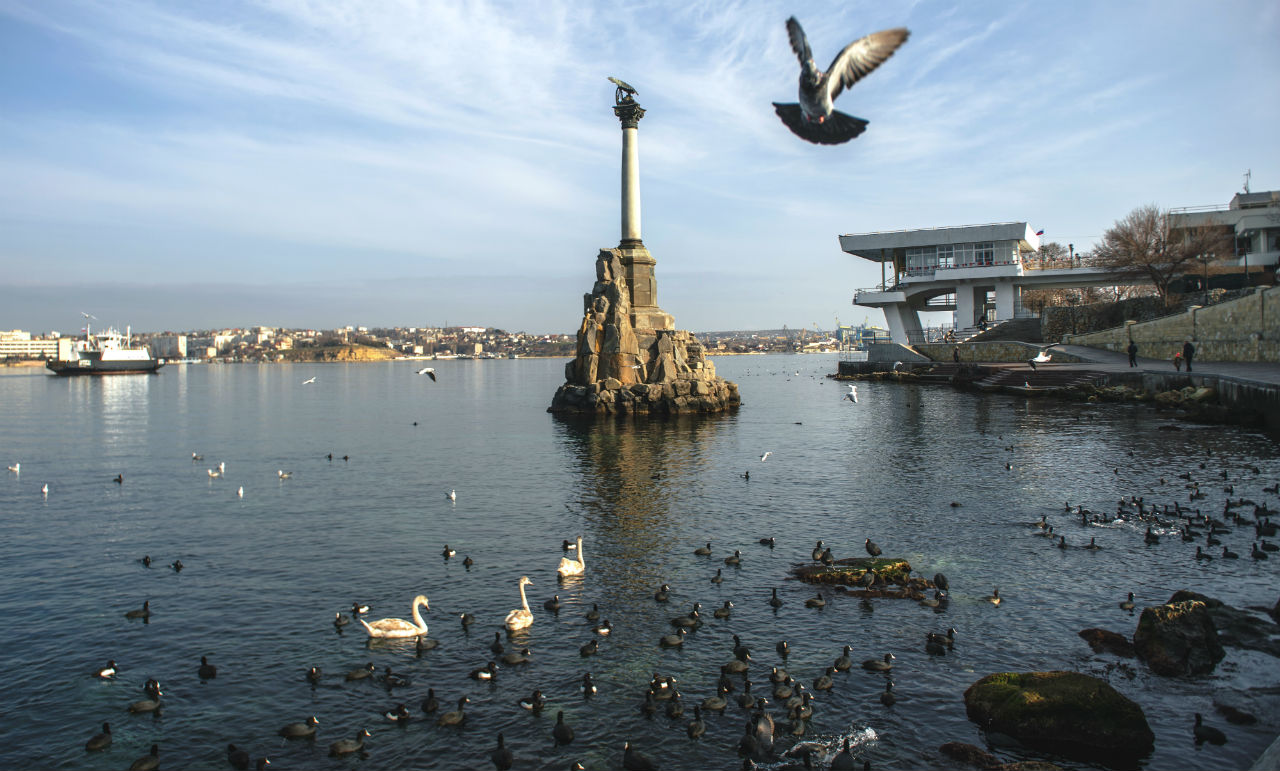
The Monument to Sunken Ships in Sevastopol, Crimea.
Vladimir Astapkovich/RIA NovostiDissatisfaction with the country's overall economic problems has changed people's attitude to the state, according to the Levada Center. In March 2016, a poll showed that 25 percent of citizens believed that "the state gives a lot but one can demand more." Now that figure is 31 percent.
Also, the ranks of those who believe that "the state gives us so little that we owe it nothing" also increased from 25 percent to 31 percent. The percentage of radically-minded citizens did not change: just like a year ago, only 19 percent are prepared to "compel" the state to serve their interests.
If a year ago 17 percent of Russians believed "the state is in such a predicament that citizens should help it and even make sacrifices," today such people account for only 11 percent of the total.
"At the moment, the problem is the various annoyances that compels people, due to the crisis, to cut consumption amid the background of endless corruption scandals," Lev Gudkov, director of the Levada Center, told Kommersant.
Other polls conducted by the Levada Center show that "people no longer see the point of Russia's actions in Syria," and that their "readiness to make sacrifices for the sake of the state’s greatness has significantly decreased," and their "concern for the future is growing."
"The 'Crimean mobilization,' and subsequent consolidation of society by the authorities is coming to an end," said Gudkov. "The trend has changed: the patriotic wave is not just becoming weaker, it's passing altogether, and tension in society will be growing."
"A consumer society has been created in the country which means that complaints, amid the background of the crisis, will grow and alienation from the state will deepen," said Sergei Obukhov, secretary of the Communist Party of the Russian Federation's Central Committee for Information and Analysis.
Obukhov added that there's a presidential election in March 2018, and feelings of dissatisfaction will become more politicized.
The ruling party, however, has a different assessment of the situation in the country, and is more hopeful for a positive outcome.
"Social well-being always lags behind the economy, for which the worst was last year. Now the situation in the economy is improving and soon it will start improving in the social sphere," said Andrei Isayev, first deputy head of United Russia’s faction in the State Duma, adding that "fluctuations in society's moods" are "natural and logical," but the party "should adopt decisions and laws directed at protecting the rights and interests of the people."
If using any of Russia Beyond's content, partly or in full, always provide an active hyperlink to the original material.
Subscribe
to our newsletter!
Get the week's best stories straight to your inbox